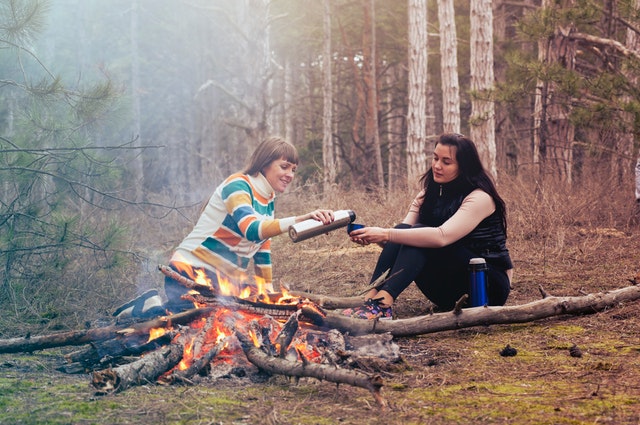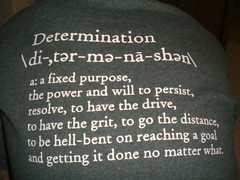What career activities should a year 9 student be involved in?

What career activities should a year 9 student be involved in?
Great question and one that many parents have been asking me.
A student can commence career coaching at any year level and during any term of the school year. However, this blog serves to outline the activities that I recommend for 14 to 15 year olds. Year 9 can be a pivotal school year, for reasons I’ll briefly go into and so this is an age-stage when I would typically have 3 to 4 coaching sessions with your child so that the the learning outcomes are clear and the practical steps are outlined and detailed in a planner.
I have to be mindful that there is a wide age range in any one academic year and some year 9s might only turn 15 towards the end of the school year. Regardless, as I’ve ‘blogged’ about before now, there are a number of career activities that I find are enormously beneficial to your 14 or 15 year old child, as follows:
Year 9 Career Development Activities
Term 1
Career Conversations
Parents are hugely influential upon their children in terms of career choice and so I would encourage you to be talking about jobs with your children whenever possible. The adage, “you can only be what you can see”, is attributed to a few different people, but it’s fair to say that upbringing and environment informs your future choices. So talk to your children and ask them what jobs they have heard of from their reading etc so that they begin to understand other options.
Career conversations can start very early in a child’s life. If we pay attention to the “Why…?” questions from a child, we can gain an understanding of where their interest is directed. So it’s not just from year 9 that we can be asking career questions, but at any time that feels right. Obviously it’s important not to bombard them with questions or you’ll soon find they will ask you to stop, in the sweetest teen voice. So choose your moment and make it an easy-going chat:
- In the car.
- Watching TV.
- While reading together.
- Over a meal – have your child show you their “About Me”/”My holiday”school assignment.
- At subject choice time.
I can help, as I am trained to actively listen and carefully interrogate a young person’s ideas and assumptions. What they bring to their discussions with me is the self-knowledge they have gained from those family conversations you have engaged in previously. I pay attention to metaphors and repeated themes, or concerns, and will ensure that these are explored deeply and sensitively.
Volunteering
Volunteering can provide a community outside of school and therefore new friendships can be made. Volunteering is also an activity that can help a young person to learn some skills that are desirable to future employers. These are not only specific skill-sets such as using technology – an electronic point-of-sale terminal (cash register), for example, but also the soft skills: using initiative: independently carrying out duties: working successfully in a team, etc. Examples of volunteering activity can include:
– Beach clean-up, or other local community activity through your local council.
-Volunteering at a local branch of a charity retail store. You can look on your local high street where a number of these stores are often looking for helpers.
– Volunteering at a local tourist attraction.
– Volunteering for a charity/not-for-profit organisation of interest, such as in the build-up to and on the day of a fund-raising event. Here’s a useful link.
I can work with your child to help them to understand the benefits of volunteering and to help them identify opportunities. Later, once your child has participated in volunteering activities I discuss their experiences with them and challenge them to explore the significance of those tasks. My participation helps to improve motivation, build career confidence and instill resilience in the face of what might sometimes be challenging encounters.
Write a journal, or Build a Resume
After having a career conversation (or two) and having participated in a volunteering activity, it’s time to put something down on paper. At school your child may have been given the task of making an “About Me” poster, or writing a report about their summer holiday. Your child may love journal writing, in which case their regular or holiday journals provide a wealth of material. If your teenager prefers he or she might choose to create a separate personal journal or scrap book and this content is a creative expression of who they are and can tell me much about what they value and dream of.
These activities are good ice-breakers. I may even ask that they bring an artefact with them to tell me about.
Term 2
Part Time Employment/Summer jobs
During year 9 your child will most likely turn 15 years of age. By then they can apply for part-time paid employment. This can be an essential learning opportunity for your child, so don’t under-estimate the value of a job. I had several part-time and summer jobs as a teenager including:
- babysitting
- delivering newspapers
- cooking food for neighbours/friends
- working at a pets boarding kennels
- washing cars
- retail work
- cafe service.
Part-time employment offers earnings, independence, growth in initiative-taking , development of confidence in interpersonal communications and skills acquisition, and all of this engenders pride and self-growth. Clearly they must not remain in an employment situation where exploitation of youth, or bullying occurs. Mind you, it doesn’t take long for rogue employers to be identified, and so asking your friends and family members for employment recommendations is one of the best ways to ensure your child is applying to decent employers.
I am able to help teenagers to find part-time or casual employment, by paying attention to their interests and preferences, and by helping them to understand how to carry out the practical steps to finding a job.
Complete a Career Assessment
Career assessments are really important career development resources and should be carried out as part of the process in deciding upon which curriculum your child follows, for example either VCE, VCE/VET combination, or Vcal(VET). This is why I recommend career assessments, such as the Morrisby Online (MO) psychometric career assessment, are completed prior to rather than during year 10.
The benefit of the MO assessment tool is that it can be very reliable, since it is based on career theory. It includes a section of aptitudes tests, which can also be removed if additional aptitude testing is not appropriate for your child. Your child has their MO report for life and its other advantage is that it can be repeated. Additionally, it is suitable for students for whom English is an additional, or second, language (EAL).
Importantly:
The MO Report can only be used and administered by an qualified and accredited user, such as myself.
It is essential that the resource is explained carefully and instructions followed accordingly.
The results are only as relevant as the input by the student. If your child has rushed the assessments, or was distracted in a noisy environment, the report can be useless and a waste of time and money. I therefore provide the appropriate guidance for logging in, creating the accounts and for the completion of the tests.
Your child’s careers assessment report is then reviewed during an appointment with me, typically taking around 60 minutes. Administered and reviewed with my help, your child will be able to explore deeply many useful careers and course hyperlinks, within their MO Report, that are directly relevant to their own result.
Term 3
School-based personal development activities
How do the activities that are often available through your child’s school contribute to their career development? Many of us understand how it feels to be stuck in the middle. In year 9, your child is in the middle of the school. They’re no longer the new kid full of excitement to meet new friends and experience a whole different campus and it’s offerings; new teachers, even a brand new uniform. Nor does a year 9 student feel as if they are anywhere near being at the top of the school – one of the kids that, in the words of Rizzo, in Grease, “Rule the School”. Graduation seems a long way off.
Year 9 is often a year of low levels of engagement and motivation. There are so many distractions that schools need to add excitement to the curriculum in order to entice 14 and 15 year olds to pay attention. What better way than to start looking beyond the gates and four walls of the school buildings? This is the reasoning behind city excursions, outward-bound camps and community activity. Both parents and 14 year olds can find it difficult to understand the logic of this, but here’s my take:
City Excursions
Why is navigating cities and public transport systems a useful school-based activity? For some students, public transport is and has been a feature of their lives for a long time, but others are not so well equipped to navigate tram stops, train connections, crowds in city areas, or even getting from A to B independently. City excursions can be a beneficial activity such that when a 15 year old gets to the stage of job seeking, they are then not overwhelmed by the logistics.
A walk in a city can serve as a conversation-opener, therefore year 9 students might be asked to write about their observations during the city excursion, or they may have an in-class discussion about their encounters. I’ve written about this before in a blog about the concept of the flanneur – “how to be an observer and to explore by yourself” – giving you the space to investigate deeply. So when your child tells you that there is such an activity taking place through school, encourage their active participation and then have your own conversation about the day when they get home. I then will cover their excursion activities in my review appointment with them.
Outward-Bound Camps
Some schools offer a number of camps across the school years, commencing as early as the primary years. By year 9 there is sometimes even a choice of camps. Parents, especially with a first child through the senior years, are sometimes perplexed by the need for these. Again, it’s for getting a 14 year old out from behind a desk, off of a screen, and made to do something that challenges them. For a range of reasons a parent may wish for their child not to be exposed to group activities with students and teachers they don’t know and are discomforted by the concerns around health and safety. My personal experience tells me that it can be really beneficial for most children to participate, as the hurdles are most often quickly surmounted and the rewards are enormous. One of my daughters was very fearful, but after a few such excursions she grew to the point of being more intrepid and resilient than I could possibly have imagined. Moreover, she surprised herself, and the pride in her achievement of trekking from the top of a mountain to the coast, over a period of 18 days, carrying all of her kit on her back, was written in her massive smile when she saw me upon her return.
These adventures are activities that can be described to an interviewer when a 15 year old is asked one of those awkward interview questions, such as, “Tell me about the hardest thing you’ve ever done.” Also, if carried out as part of a team challenge a student can articulate the way in which they might have demonstrated leadership, even if they have never been given a formal leadership role. Finally, outward-bound camps can be an activity that counts towards awards such a the Duke of Edinburgh Awards. The resume of a 15 year old that has such accolades can lift the employability potential of the young person at a time when they have very little in the way of work experiences under their belt. They will then stand out in a crowded employment market for youth jobs and thereby accumulate more experiences.
In career coaching I will pose questions in a mock-interview scenario, when appropriate, in order for your child to practice the skills needed for responding to questions around their experiences.
Community activities through school
This is aligned to the volunteering that your year 9 child can opt to sign up to independently. Community activities do contribute to your child’s development generally and also with respect to their career development, and this is why schools encourage participation in year 9, and beyond. Some community oriented activities take place on the school grounds either during school hours, or they might take place during the weekend when you school is closed for classes.These might be to work on a fundraising ‘Sausage Sizzle’ during recess at school, or to run a stand at the School Fete on a weekend.
There are then some community activities organised by schools specifically for year 9s that form part of a program. These might be optional or compulsory. They may have the option to choose either to participate in an outward bound adventure camp, or to carry out a local community activity. For example, at a school in my local area, if for any reason a year 9 student is not willing or able to travel to a location where a trek or camp has been organised, they may remain local and become involved in a charity activity, such as helping at a Christmas Market.
Any co-curricular activity that the school offers in year 9 can be enormously beneficial to your child. Once they have carried out a community activity, the tasks that they were involved in can be added to a list of skills and embedded into their resume. Skills are transferable. These might include being made responsible for cleaning kitchen equipment, or counting the takings on a stall. Both such tasks show initiative as well as the ability to follow instructions and to communicate well with supervisors and other workers/students.
I work with my clients to help them to write succinctly in a job application cover letter and in their resume the skills they have gained, and the skills they obtained from camps are relevant here.
Term 4
Choose year 10 electives and study options.
This is the term when school Curriculum Co-ordinators like to have every student’s subject choices locked in. This is because the administration required is lengthy and the timetables are hard to adjust for any late changes. This is particularly the case in smaller schools. In year 9, students will be shown the details of what elective subjects are available in year 10 and these choices can be really helpful in enabling the exploration of a subject previously never attempted. This is turn can open a young person’s eyes to a career opportunity.
Many year 9 students in Victoria, who have achieved decent grades in their course work and exams, may be encouraged, or asked if they would like to consider commencing a course of study that leads to an accredited VCE grade. Similarily in other states of Australia, many schools do allow year 10s to commence formal studies early. It is important therefore for a year 9 student to have a conversation with parents and a qualified career coach such as myself, in or before term 4, about the pros and cons of this option.
Commence some research into options for a year 10 Work Experience Placement.
Most State schools and some independent schools offer a Work Experience Program, which allows students to carry out a 1 week long placement with a local organisation. Often the student is required to find a placement themselves and there is a lot of administration to complete. This means that planning should take place well in advance of the placement period. Some schools have an allotted Work Experience week, perhaps halfway through year 10, and this means that all of the students are in competition with each other for places. Plus if the school has strict rules around working with family members, this proves limiting too.
I am able to use my coaching expertise to review your year 9 student’s school-based and independent career activities in order to help with finding a Work Experience Placement.
So year 9 is a potentially pivotal year for secondary school-age students. Year 9 is the year level when many students will turn 15 years of age, meaning that they are then legally able to find employment. There are other activities that can help to inform their appreciation of the world of work, which in turn is highly motivating and this is why I like to coach them through these events and activities such that they gain the best benefits possible.
If you are interested in finding out more about how I can support the development of your year 9 child’s curiosity about careers, please read my other blogs and pages in my website. Then you may contact me via the Contacts Tab on this website.
Similar articles

“There is nothing Clever about not being Happy” Arnaud Desjardins
That’s a pretty bold statement, Monsieur Some Gardens! I found the quote in a gorgeous book, Buddhist Offerings 365 Days, Edited by Danielle and Olivier Follmi, and published by Thames and Hudson. Alongside of each days’ quote is a stunning photograph, and against this particular quote is a photo of a horse lying on its […]

“Where there’s a Will, there’s a Way”
I heard myself saying this to a despondent young man the other day, and wondered how helpful I was being. Oh dear, questioning my own tips might be a troublesome habit, however it does serve to galvanise me into action to check on my sources and ponder the idiom.

20th March is International Day of Happiness
“Each individual is master of his or her destiny: it is up to each person to create the causes of happiness” The 14th Dalai Lama 20th March is International Day of Happiness What a pity we need special days and coffee table books with images of smiling faces to nudge us into a happiness […]
